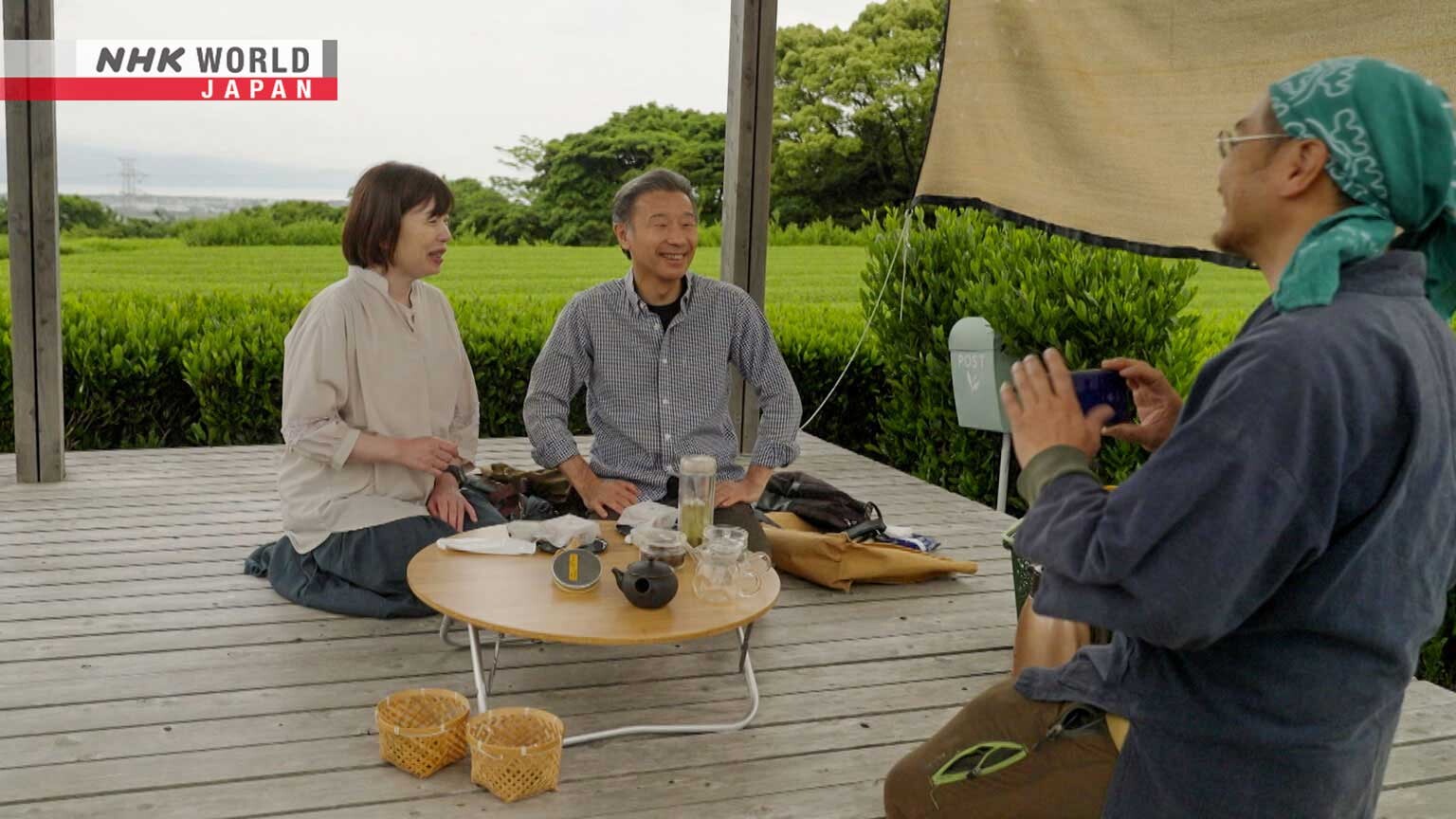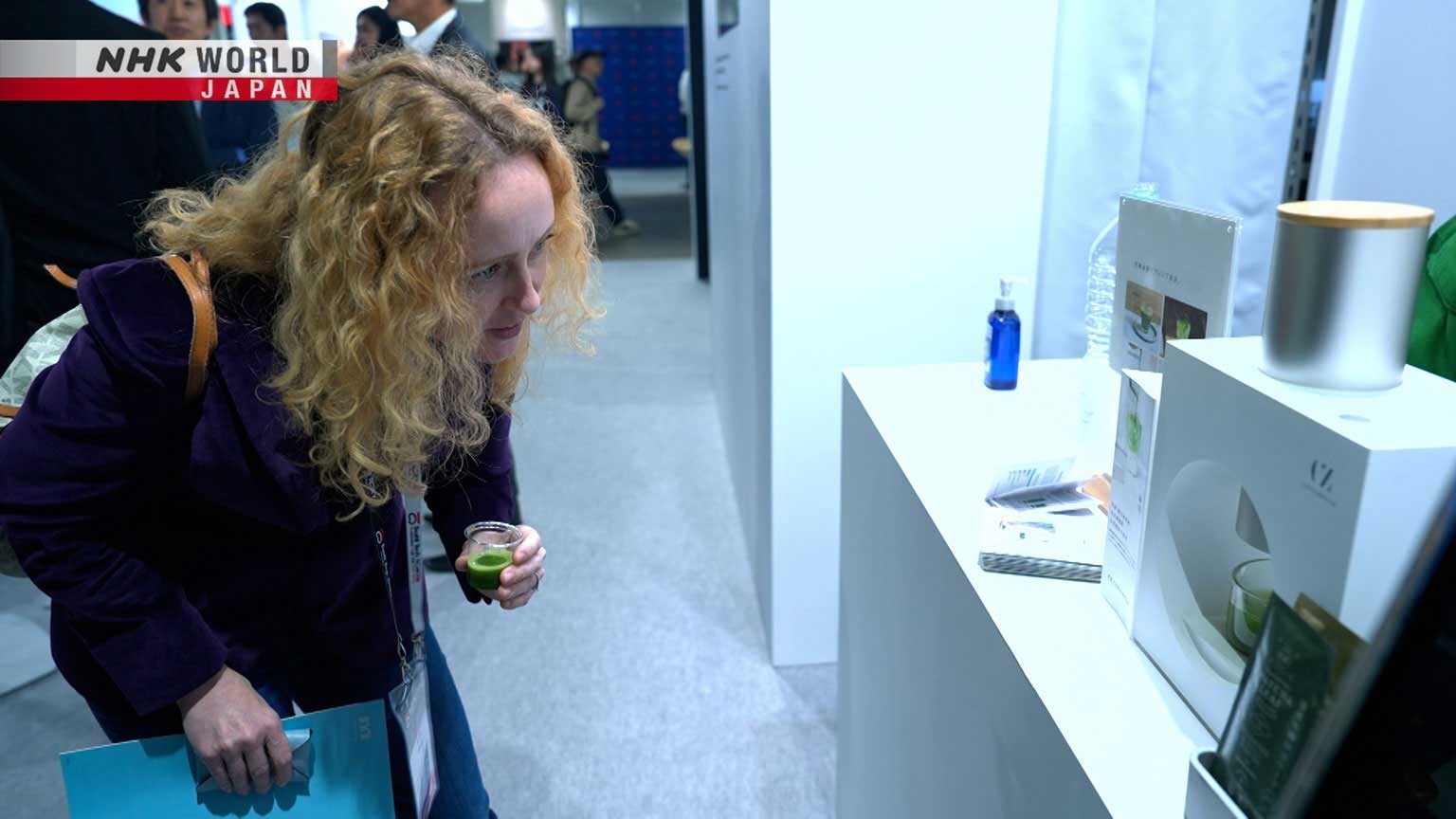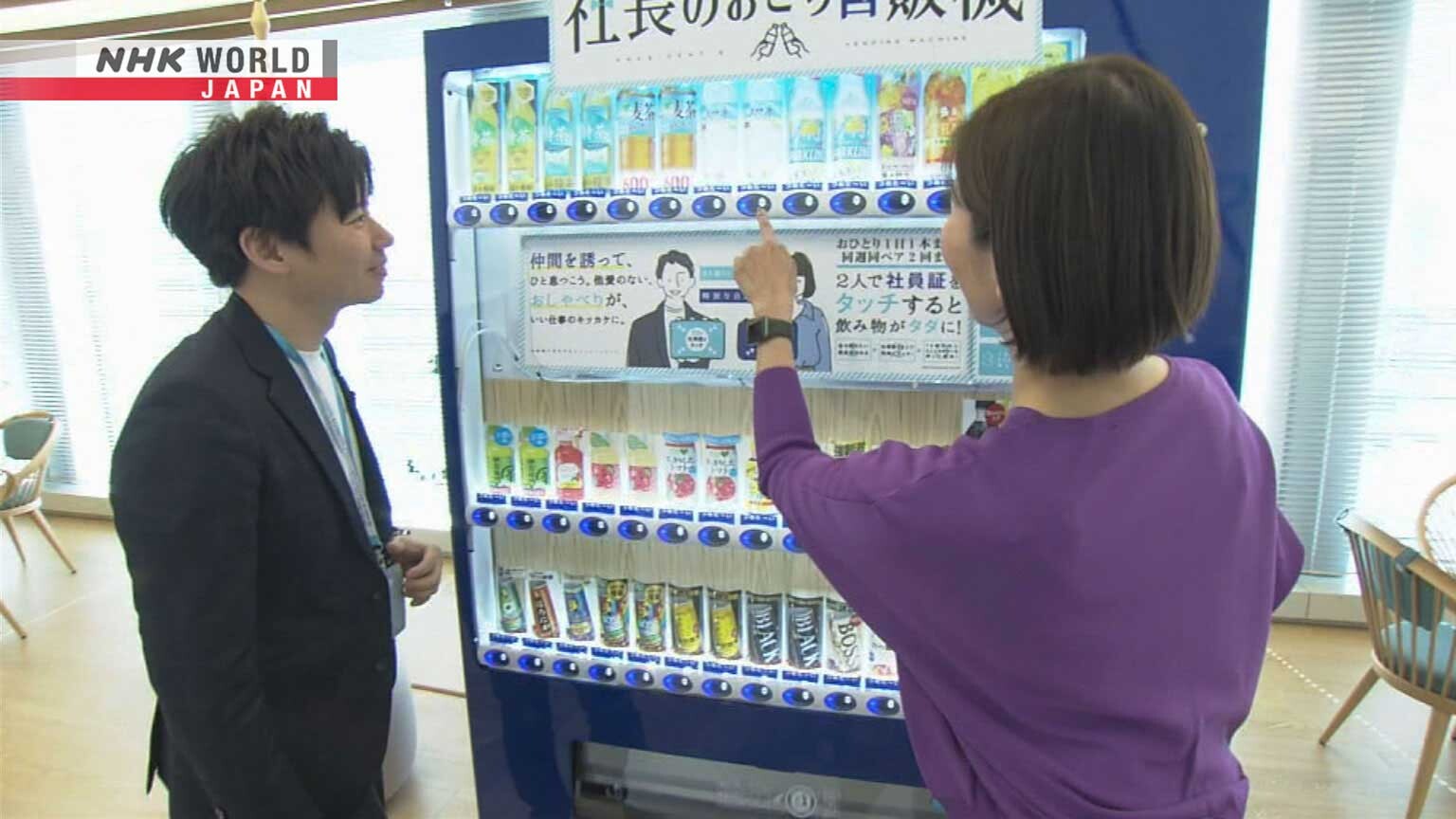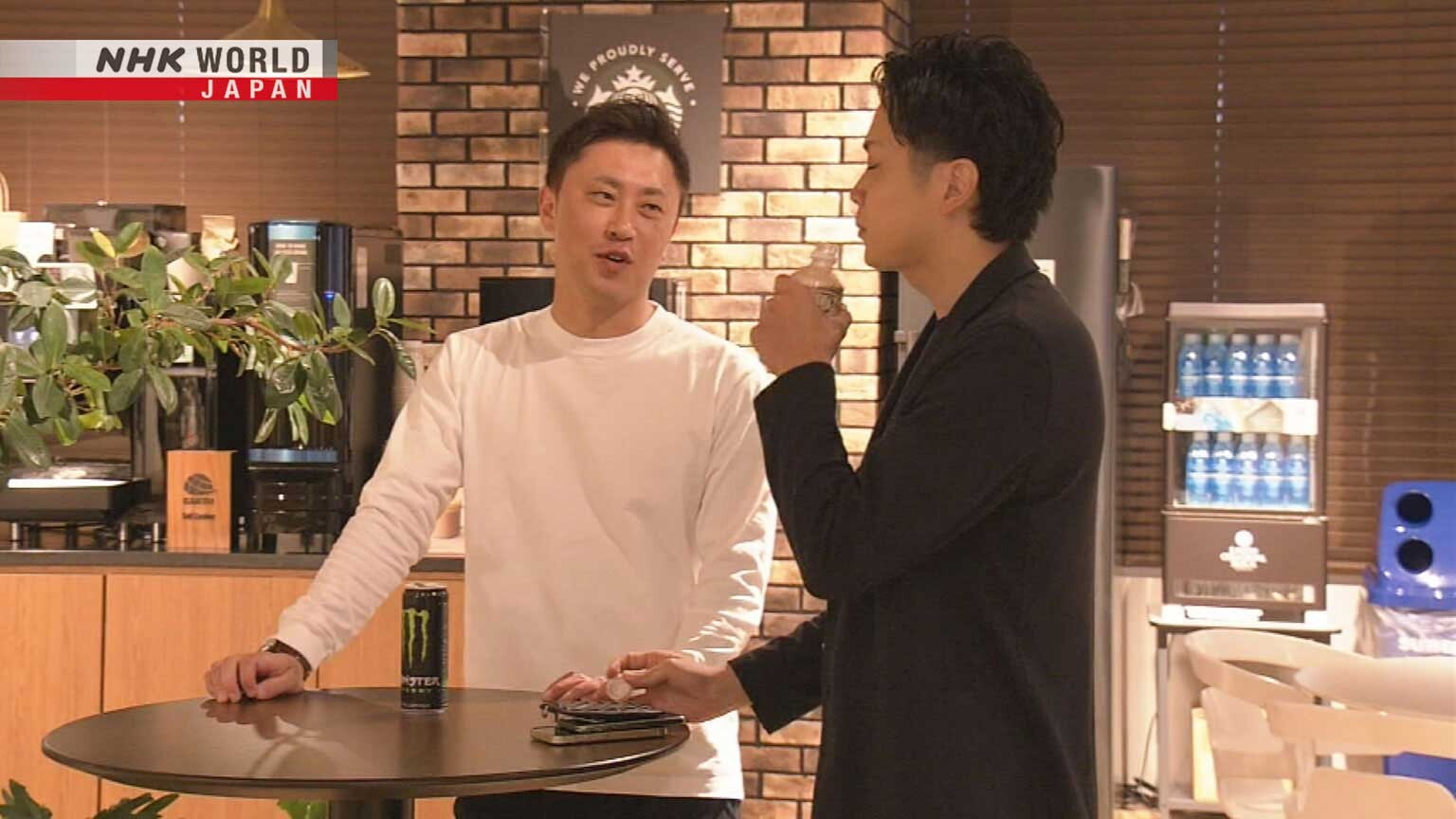Rediscovering the BeauTEA of Japanese "Cha"
[On-Site Report: Rediscovering the BeauTEA of Japanese "Cha"]
This episode features businesses that are introducing new goods and services to help bring back the popularity of high-quality Japanese green tea.
*Subtitles and transcripts are available for video segments when viewed on our website.
On-Site Report: Rediscovering the BeauTEA of Japanese "Cha"


Global Trends: Vending Machines Foster Office Communication
Drinks for free. Japan is famous for having vending machines almost everywhere. But some workplaces are offering something special—machines that foster friendly ties by providing the beverages for free, but only if you get them with a buddy.


In Focus: Japan's Rising Rates Bring Headaches, Opportunities
Japan's long-term interest rates have hit their highest in over a decade, as the central bank looks set to normalize its monetary policy sooner than expected. We look at what this means for the economy.
Transcript
The benchmark for long-term rates is the 10-year government bond.
Its yield rose above one percent in late May for the first time in 11 years.
Investors sold government bonds after the Bank of Japan suddenly reduced the amount it buys
in a regular operation to pump funds into the market.
Japan embarked on its radical easing program to fight deflation in 2013 under Prime Minister Abe Shinzo.
The country is now moving back toward a more normal policy, and rates are rising fast.
Recent yields have been the highest in over a decade.
Consumers are starting to feel it, especially home buyers,
as banks raise their fixed loan rates in response to the current environment.
"Unfortunately, my salary is not going up. So I think things could become a little bit tough for me."
"Of course, it's better if loan rates don't rise. But, if they do, we have to cope by cutting spending on other things."
Higher borrowing costs won't just affect home buyers and businesses.
They will also weigh on how the government manages its debt.
"If long-term interest rates go up,
that means the government will have to pay higher debt-servicing costs for the issuance of new bonds."
"That could put pressure on the country's finances."
But there are upsides, as well.
Higher rates mean better returns on deposits at financial institutions.
People in the insurance industry also say
customers are expecting higher gains on investments under their plans.
"Rising rates may benefit insurance policyholders. More and more people have been reviewing their policies."
Some experts also believe higher rates could keep the fall of the yen in check,
as the differential between the US and Japan narrows.
The weak yen has been a source of headaches in Japan,
as it imports so much of its food, energy, and raw materials.
But Mizuho's Tanji says much will depend on how far the Bank of Japan goes in raising policy rates.
He thinks there are limits to what it can do.
"The central bank aims to generate inflation in a stable and sustainable way with a positive cycle of higher wages and prices."
"But I personally doubt momentum is building for higher wages throughout the economy."
"I predict the BOJ will have trouble raising rates much further."
"That could push the 10-year yield back down, to settle below one percent."
Japan has finally returned to a world where interest rates are a real consideration.
Many are wondering just how high they will go,
and how much room the BOJ has to maneuver to get the economy moving, with challenges in every direction.
This Tokyo office building is home to a company that makes and markets insecticides for home use.
At lunchtime, employees line up at the vending machine that was installed in January...
not single-file, but two-by-two.
Instead of inserting money, two people hold up their employee IDs at the same time...
and both of their drinks are free!
Employees can get one free drink a day.
A total of 500 workers have used the machine in the past two months.
"I'm so happy. I use it every day."
"This motivates me to work."
An employee getting a drink alone needs to pay.
The company covers the costs of drinks for pairs, which comes to about 2,000 dollars a month.
"There is a cost to the company, but we want to provide a better working environment."
"I hope this shows our employees that the company is commitment to them."
This new type of vending machine was developed by a major beverage manufacturer three years ago.
The number of offices installing them has gradually increased to over 400.
Why do the machines reward two people who use them together?
The aim is to foster employee interaction, which has been declining due to changes in work styles.
"This might not be as much communication as two people would share by having a meal together,
but it is more communication than a simple greeting."
Another office using the vending machine is this marketing company in Tokyo.
The company had the machines installed two years ago,
and removed drink limits for new employees and those who have just changed jobs.
Ishikawa Shiona was reassigned last year, and immediately felt lonely.
"I felt very uneasy, because I didn't know who I could talk to."
But...
"Won't you come to the vending machine with me?"
- Sure.
- I'll go.
Two employees responded to Ishikawa's invitation.
Now a trip to the vending machine is an excuse to strike up a conversation.
- How often do you come to the office?
- About 3 times a week.
"That's a lot. Let's meet up at the vending machine again."
"It's a great opportunity to talk to people."
Vending machines are everywhere in Japan.
Using them is a solitary experience.
Having vending machines encourage interaction at the office turns them into a powerful communication tool.
A tea tasting service featuring panoramic views across a sea of green tea leaves...
And a machine that grinds and whisks up tasty matcha green tea for you!
Today's On-Site Report features businesses that are hoping to rekindle demand for high-quality Japanese tea!
Shizuoka Prefecture holds the title of Japan's top tea-leaf producer.
With harvest season underway, 5th-generation farmer Honda Mohei's plantation is in full swing.
In recent years, however, Honda says things are becoming difficult as sales to his biggest clients,
beverage producers, have been on the decline.
When it comes to my main distribution channels, sales are definitely down.
The beverage corporations have found ways of extracting more and more from each tea leaf -
and that increase in efficiency for them has meant unsold leaves for farmers like me.
In response, Honda has started a service to attract a new type of customer -
tourists from around Japan as well as from abroad.
"Wow, fantastic!"
"This is really impressive!"
While taking in views of the iconic Mt. Fuji,
guests can enjoy an expertly prepared cup of tea while sitting in the midst of his plantation's lush greenery.
"I'm going to make some fresh tea for you now. It was just harvested this week."
"This fresh fragrance and flavor can only be enjoyed for about one month each year."
"Ahh, it's delicious!"
"I usually just drink plain old bottled tea. More than anything else, because it's affordable."
"So, being able to really savor the taste like this is pretty special. We're having a wonderful time!"
If guests visit his farm between April and November, they can also try their hand at picking tea leaves.
The 90-minute tasting experience is available year-round at a cost of about $25 per person.
The idea for the service was first proposed by Tsuji Serika, the CEO of a tea-related consulting company.
"I want to sell as much tea as possible. I think one way we can do that is through tourism."
"By drawing people in with the spectacular scenery, hopefully we can sell more local tea!"
Tsuji's company has partnered with 6 tea farmers who own plantations throughout Shizuoka prefecture.
Since launching in 2019, over 18,000 visitors have paid for the experience.
With inbound travelers on the rise and ever-increasing exposure
thanks to social media, the number of annual visitors is only expected to grow!
According to Honda, the majority of guests who come for the tea service
also end up buying leaves from him during their visit.
This year, should mark a new milestone for his business
as he expects direct sales to average consumers to exceed sales to beverage manufacturers.
"I think more and more people are placing importance on discovering new things and having unique experiences."
"And our plantation is really benefiting from that."
"We are now attracting all sorts of people - not just from across Japan, but from many different countries!"
This small tea plantation is nestled in the foothills of western Shizuoka prefecture.
Leaves for making a traditional type of powder-based green tea called "matcha" are grown here.
By growing the plants under sunshades for a certain period of time before harvesting,
they develop darker leaves that produce a richer flavor and aroma.
Hoping to promote the sale of these specially grown tea leaves,
Tsukada Eijiro is working to increase the popularity of matcha tea.
"How many weeks until you harvest?"
"A bit longer, maybe 5 days!"
"I just love the color and the young leaves look so soft!"
Tsukada was originally involved in the development various tea drinks at a major beverage manufacturer.
He says that while matcha-based drinks caught on in the United States about 10 years ago,
there weren't many options available for people to enjoy the true flavor of matcha.
"Sweet drinks were quite common, they usually contained lots of milk or sugar to give them broader appeal."
"But authentic matcha tastes great as it is. It really doesn't need anything added to it."
"So, I want to make it possible for more people to experience how delicious it can be on its own."
To make the traditional drink more accessible to a broad range of people, he developed a "matcha maker."
He designed it to include a built-in grinder, so it could process freshly ground matcha powder
using tea leaves sourced from carefully selected farms.
Traditionally, matcha is produced by grinding diced dried matcha leaves into a fine powder using a stone mill.
His machine, however, uses a tiny ceramic mortar with a specially designed grinding surface
that allows it to produce a matcha that is nearly identical to stone-milled powder.
Grinding matcha powder just before preparing the tea ensures that the full-flavor of the leaves can be enjoyed.
When prepared by hand, the powder must be properly mixed with water
using a special bamboo whisk called a "chasen."
The "matcha maker" makes use of a miniature whisk attached to the bottom of the server that is spun magnetically.
Tsukada now displays his device at various trade events around the world
in the hopes of reaching new audiences and increasing the appreciation for matcha.
"It's quite impressive. There's even like the perfect bubbles on top."
"We get the best coffee by grinding the beans. It makes sense to do it with tea - grind the leaves."
"It's really impressive."
"Our mission is to take this product overseas so we can find new customers who are looking for these kinds of quality products."
"I think once they see how good it really is, many will want to buy it."
"If more people start drinking high quality tea and matcha on a regular basis,
that will ultimately go back to the farmers, so we're our doing best to make that happen."